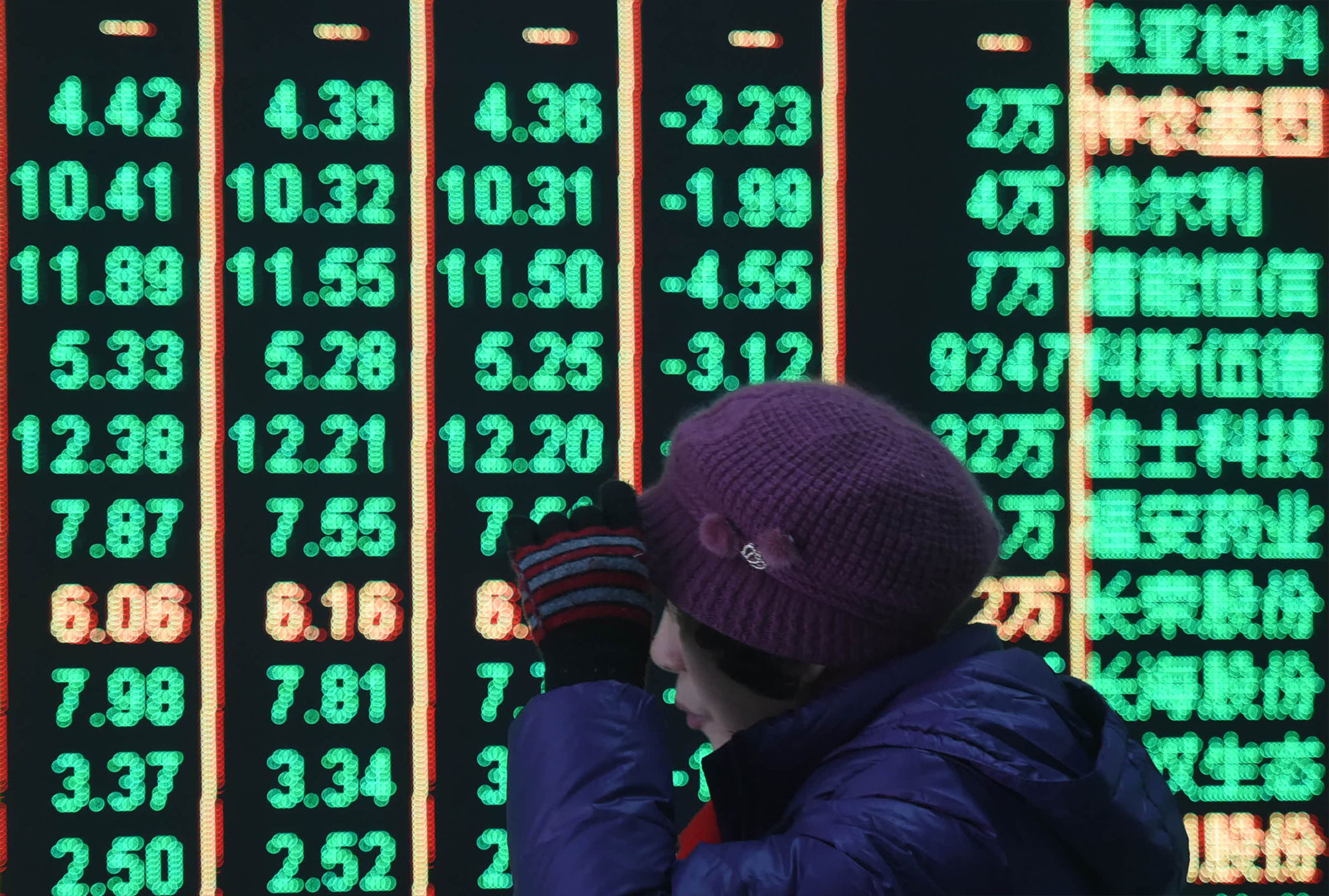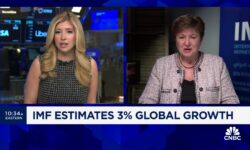
China’s securities regulator has rolled out a slew of measures, ranging from short-selling curbs to harsher penalties for market breaches, in a bid to reverse a stock market rout that is seen posing a risk to financial and social stability.
The latest efforts seek to reverse the slide in mainland China shares, among the worst performers globally this year, and cap damage to consumer confidence and the broader economy. Left unchecked, the sell-off has the potential to further erode the wealth of the nation’s 220 million investors, who are already grappling with shrinking incomes amid an economic slowdown.
“The government is concerned about such a magnitude of declines, and all these policies indicate that top policymakers do not want to see further declines from here,” said Wang Zheng, chief investment officer at Jingxi Investment Management in Shanghai. “I think these measures can hold up the market for now. But whether investors will reverse their calls on stocks depends on how the government can get fresh capital into the market and manage the economy.”

The benchmark CSI 300 Index, which tracks the 300 largest companies on the Shanghai and Shenzhen bourses, rallied 3.5 per cent on Tuesday, its best day since November 1, 2022. The CSI 1000 Index of small-capitalisation stocks jumped by as much as 8.1 per cent for the steepest one-day gain on record.
The rally also received impetus from state intervention. Central Huijin Investment, a unit of China’s US$1.24 trillion wealth fund, said on Tuesday it had bought an undisclosed amount of index-based exchange-traded funds recently. The investment arm said it would continue increasing investment holdings to stabilise the market.
China IPO volume dives after regulator engineers offering drought to boost markets
China IPO volume dives after regulator engineers offering drought to boost markets
Overseas investors are treading water, buying 12.6 billion yuan (US$1.75 billion) of Chinese stocks on Tuesday, the sixth straight day of net inflows, using the exchange link programme with Hong Kong. Foreign traders were net sellers in the six months through January.
Mainland China shares have seen their value erode by US$3.1 trillion since the start of 2021, after Covid-19 lockdowns and as the post-opening economic recovery stalled. Expansion of market capitalisation has trailed economic growth in recent years, and the combined value of onshore stocks has now shrunk to 54 per cent of the 126 trillion yuan economy, from 67 per cent in 2015 when a meltdown wiped out US$5 trillion in capitalisation, according to Bloomberg data.
The watchdog also said that it would heighten scrutiny of the market to revive investors’ confidence. It would have zero tolerance for malpractices such as manipulation and “malicious short-selling”, according to a statement posted on its website late on Monday, which cited two cases of clamping down against manipulating stocks and futures. That followed a weekend statement that said the stock market regulator would target fraud linked to listings and accounting.
Last week, a CSRC announcement barred short-sellers from borrowing so-called restricted shares, or stocks that are held by strategic investors and not available for public trading before the lock-up period expires.
All these rescue efforts came after last month’s call by Premier Li Qiang for more forceful measures to shore up stocks. A previous package of rescue measures ranging from stamp duty cuts to limiting new supplies of shares by restricting IPO approvals, failed to lift sentiment, with the intensifying sell-off taking the CSI 300 to a five-year low on Friday.
Goldman Sachs estimated that the so-called national team, or state-owned investors, spent about 70 billion yuan buying onshore stocks over the past month and that a minimum purchase of 200 billion yuan would be needed to stabilise sentiment in the short term.
During the 2015 rout, state buyers poured about 1.3 trillion yuan into bourses, but the market troughed only in 2016, when margin positions were unwound completely and after the economy rebounded, the US investment bank said.
“Relying solely on support from state capital does not necessarily solve the fundamental issues that could be the causes of the drawdown,” Kinger Lau, an analyst at Goldman, said in a report on Monday. “In China’s case today, there are complex macro challenges along the axes of property, leverage, and the banking system that are pressuring potential growth.”
The news is published by EMEA Tribune & SCMP Follow our WhatsApp verified Channel
Follow our WhatsApp verified Channel









